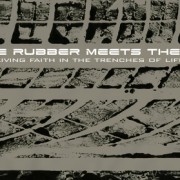On Sermon Preparation
I’ve been asked to do a workshop on sermon preparation at the NorCal pastors and leaders conference. I’m sure there are plenty of men more suited to the task, but I accepted the invitation anyway.
In this blog I’m simply going to share my notes with you. In the actual workshop, I’ll fill in the blanks. Also, in the part about the necessity of being clear, near the beginning of the talk, I’m going to play a YouTube video entitled the Turbo Encabulator. It’s hilarious, a spoof … but illustrates (using exaggeration) how NOT to speak. I include the URL here for your enjoyment.
http://www.youtube.com/watch?v=rLDgQg6bq7o
Blessings to all of you who regularly address God’s people by opening up God’s Word. May He gift and enable us to do this task well.
On Sermon Preparation
Sermon Preparation. Suggestions concerning more effective communication of Biblical truth, especially in verse by verse Bible teaching.
NOTE: it’s vital that we do this well, but it is NOT vital that it be pleasing to everyone. We don’t cater the message for our audience, although we may adjust it to meet present needs. Yet, the whole truth and nothing but the truth will set people free. The truth, understood and applied, will change people’s lives. We begin with the truth, and let it works its way to the people, by the Spirit. We DO NOT begin with the people, with their needs (felt or otherwise), and then organize scripture to satisfy them.
NOTE: we must be clear… clarity is of utmost importance in sharing the truth of God.
Thoughts on Hermeneutics
Assumption
- Hermeneutics is the art and science of the interpretation of texts.
- Biblical hermeneutics is the science of the interpretation of the text of the Bible.
- Basic principle: for each and every passage of scripture, there is one primary and intended meaning of the text.
- THEREFORE, it is the work of the interpreter to discover what that meaning is, and then make application of that meaning.
TO DO THIS, we must not only understand the passage and its application, but also work hard at making it clear. If the interpreter does not understand the message, clarity will be impossible.
The Introduction
- Like a takeoff in an airplane ride (Jon Courson).
- It’s telling them what you’re going to tell them (Toastmasters International).
- It’s introducing the passage. Tell them about the theme. Let them in on what they’re about to hear.
The Body
- Like the actual flight of the plane (Jon Courson).
- It’s telling them what you’re going to tell them (Toastmasters International).
- It’s teaching the passage, working through its flow of thought, and working through its meaning and application.
The Conclusion
- Like the landing of the plane (Jon Courson).
- It’s telling them what you’ve told them (Toastmasters International).
- It’s summing up, making the final point, it’s extending the invitation, it’s exhortation to do the application, etc. The conclusion can be many things.
OVERALL: we must give the people confidence that we know where we’re going, that we’ll get there, that they’ll be able to catch your drift, follow you in their thoughts, etc. If they lack this confidence, we’ll lose them. Their minds will drift off, or they’ll tune us out. The devil is ever ready to snatch the word out of their minds if they don’t understand it (Matthew 13:19).
WE STRIVE FOR CLARITY. I want the people to understand what is being said in the text, and how I am interpreting it. If someone tells me afterwards that the message was clear, I’m stoked.
Today’s Method
- I understand that sermon preparation is somewhat subjective, but I’m going to give you a summary of how I generally do things. At best, what I’ll share will spark a new approach for you and help you … at the least, it will provide a mirror at which to look at your own methods. When I was coaching, I often reflected on the good and bad traits of the coaches I played under. Their strengths and weaknesses taught me much.
- Reading through the entire Bible. (Recommend: 30 Days to Understanding the Bible in 15 Minutes a Day)
- Get your theology from the teaching of the books of the Bible. Soteriology: Romans, for example.
- I read the text out loud, in prayer.
- I outline the passage.
- I study the passage, using O,I,A (inductive method: observation, interpretation, application).
- I read commentaries. During the week I’ll listen to studies as I’m walking, driving, working out … I tend not to listen to studies and take notes while I’m listening.
- I learn the movement of the passage, the theme of the passage. Sheri will ask me what it’s going to be about. I want to be able to answer her with one crisp and succinct sentence.
- I give it a title. Even if it’s a midweek Bible study, going through a couple of chapters, I give it a title. The title grows out of the passage, not the other way around.
- I type it out.
- For a Sunday AM message, I usually sit on it, let it germinate, let it percolate. Then early on Sunday morning I’ll cut stuff out, insert illustrations, try to see the message in the big picture.
- I pray, get up in front of God’s people, and let it rip. I don’t care how I feel, how frustrated I am with myself, how depressed I am about how things are going … I am not going to cheat the people, I’m going to give them the best I have, with God’s help.
NOTE: we cannot … we must not … underestimate the value of what we do. Lives do change, and hopefully, disciples are made. Self-feeders, believers who grow into mature saints.
Sermon Notes—The Outline (example from a recent message)
“When Faith is Tested”
Matthew 15:21-39
CC Santa Cruz
August 26, 2012
I. The Story of a Woman with Great Faith (15:21-28)
II. The Story of the Faith of Desperate and Hopeful Crowds (15:29-31)
III. A Story of Unexpected Blessing upon Unlikely People (15:32-39)











